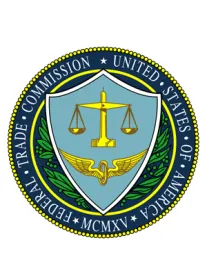In an unprecedented move further expanding its ongoing investigation of large technology companies, the Federal Trade Commission (FTC) has ordered Amazon.com, Apple, Facebook, Microsoft and Google to provide details about their acquisitions during the past 10 years that were not reportable to U.S. antitrust agencies under the Hart-Scott-Rodino (HSR) Act. Invoking its authority under Section 6(b) of the FTC Act, which authorizes the FTC to conduct widespread studies that do not have a specific law enforcement purpose, the Special Orders issued to these five companies on February 11, 2020, require them to provide a broad array of information and documents on the terms, scope, structure, and purpose of those prior acquisitions. The probe will likely involve hundreds of transactions that previously escaped antitrust review because they fell below the HSR Act’s dollar-value thresholds or were otherwise exempt from filing.1
The Special Orders require each recipient to provide information similar to that requested in an HSR filing. The orders also compel the firms to provide details regarding their corporate acquisition strategies, voting and board appointment arrangements, agreements to hire key personnel, and non-compete arrangements. Additionally, the companies are required to provide information related to post-acquisition product development and pricing, including whether and how acquired assets were integrated and how acquired data has been handled.
Through the probe, the FTC seeks to enhance its understanding of acquisitions in technology markets and to examine whether the large tech companies’ acquisitions of nascent or potential competitors have harmed consumers or otherwise hurt competition by discouraging innovation or investment. The investigation will cover not only full-fledged takeovers of smaller companies, but also arrangements involving minority investments, licensing agreements, and data acquisitions. According to FTC Chairman Joe Simons, “[t]his initiative will enable the Commission to take a closer look at acquisitions in this important sector, and also to evaluate whether the federal agencies are getting adequate notice of transactions that might harm competition….”
This FTC probe could have significant ramifications for antitrust review of mergers. At a micro level, FTC officials acknowledged that the study could lead antitrust regulators to seek to unwind or modify previously consummated transactions they deem anticompetitive. More broadly, the FTC intends that this probe will help it analyze whether additional transactions should be subject to premerger notification requirements.
Also notable was that two of the five FTC Commissioners (from different political parties), Christine S. Wilson (R) and Rohit Chopra (D), issued a joint statement supporting the issuance of the Special Orders but also questioning the sufficiency of the HSR notification process generally and calling for similar studies of smaller non-HSR reportable deals across other industries, beginning with healthcare. In their statement, the Commissioners identify several healthcare markets, including pharmaceuticals, hospitals, and dialysis facilities, that have seen a pattern of consolidation through acquisitions, many of which fall below the HSR thresholds.
No matter what the outcome of this study, the potential for further such industry-wide probes, coupled with the increasingly frequent review of consummated mergers by the antitrust agencies in recent years, serves as an important reminder to companies and their counsel to assess the antitrust risk associated with transactions, irrespective of deal size.
1 Pursuant to the HSR Act, the federal antitrust agencies (the FTC and the Antitrust Division of the U.S. Department of Justice) have a statutory right to review mergers, acquisitions and joint ventures over a certain size before they are consummated.




 />i
/>i

